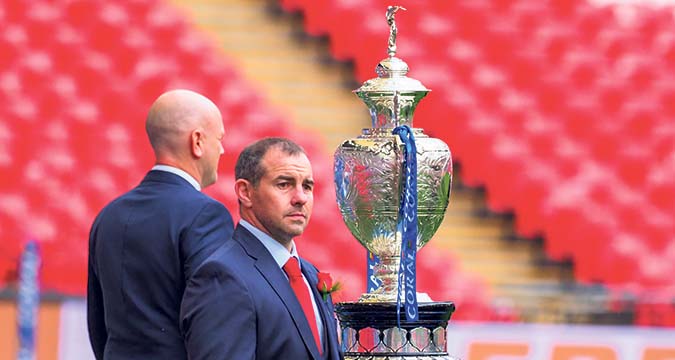 Amid the host of storylines that provide colour to every Challenge Cup final, there was one that wasn’t lost on ardent supporters of the sport outside Super League.
Opposing coaches Ian Watson and Richard Agar both spent almost their entire playing careers at that level and then cut their coaching teeth there, before rising to the top of Rugby
Amid the host of storylines that provide colour to every Challenge Cup final, there was one that wasn’t lost on ardent supporters of the sport outside Super League.
Opposing coaches Ian Watson and Richard Agar both spent almost their entire playing careers at that level and then cut their coaching teeth there, before rising to the top of Rugby Championship Focus: Challenge Cup final coaches talk about their career development
 Amid the host of storylines that provide colour to every Challenge Cup final, there was one that wasn’t lost on ardent supporters of the sport outside Super League.
Opposing coaches Ian Watson and Richard Agar both spent almost their entire playing careers at that level and then cut their coaching teeth there, before rising to the top of Rugby
Amid the host of storylines that provide colour to every Challenge Cup final, there was one that wasn’t lost on ardent supporters of the sport outside Super League.
Opposing coaches Ian Watson and Richard Agar both spent almost their entire playing careers at that level and then cut their coaching teeth there, before rising to the top of Rugby 